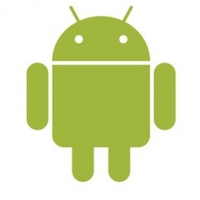How Android Became the OS of the Internet of Things

Recently, I wrote a story for TechWell about the coming invasion of Android on the PC and how Google wants to “put computing everywhere.” This concept is not new; it is commonly called the Internet of Things—and Android is the OS making it possible.
Google’s Sundar Pichai, head of both the Chrome and Android teams, made it clear at the Nexus 7 launch that Google’s plans go beyond the web. This contrasts with what Bill Gates envisioned as he famously dreamed of putting a PC in every house—who knew that he did not dream big enough? Gates failed to take into account every device in the house running an OS and being connected to the larger world. Just like on the PC, it might be Microsoft that suffers the most from Android’s expansion.
As I wrote in my previous story, Microsoft is threatened on the PC primarily because Android is open source and requires no license fees. Windows Embedded, Microsoft’s device OS, made inroads into that market, but Android’s low cost and flexibility has made it the OS most desired by device manufacturers. Android’s flexibility comes from the ability of device makers to modify the OS to perform functions specific to the task being tackled.
For example, Android has been repurposed to run on small irrigation controllers to regulate water valves. Android can be altered to minimize power usage while still controlling the valves and connecting to a larger network. This is a very specific task with a very limited market, and, as a result, Windows Embedded’s cost alone would eliminate it from consideration. Google also does not have to worry about Apple in this market due to Apple's unwillingness to allow its OS to be run on third-party devices.
Connecting every possible device to the Internet sounds cool, but in the end this functionality will need to provide real value to the end-user.
The opportunity is available to device makers to deliver innovation through the existing Android app ecosystem. If developers see opportunity in these platforms, they will create useful apps that enhance the total user experience. Personally, I don’t need to play Angry Birds on my refrigerator door, but I would be interested in an app that optimizes my refrigerator’s energy usage or notifies me remotely if the compressor fails.
It is up to device makers to expose this information to third-party developers. Android has many benefits to these companies, but it is the total Android marketplace that will truly allow consumers to embrace the Internet of Things.

